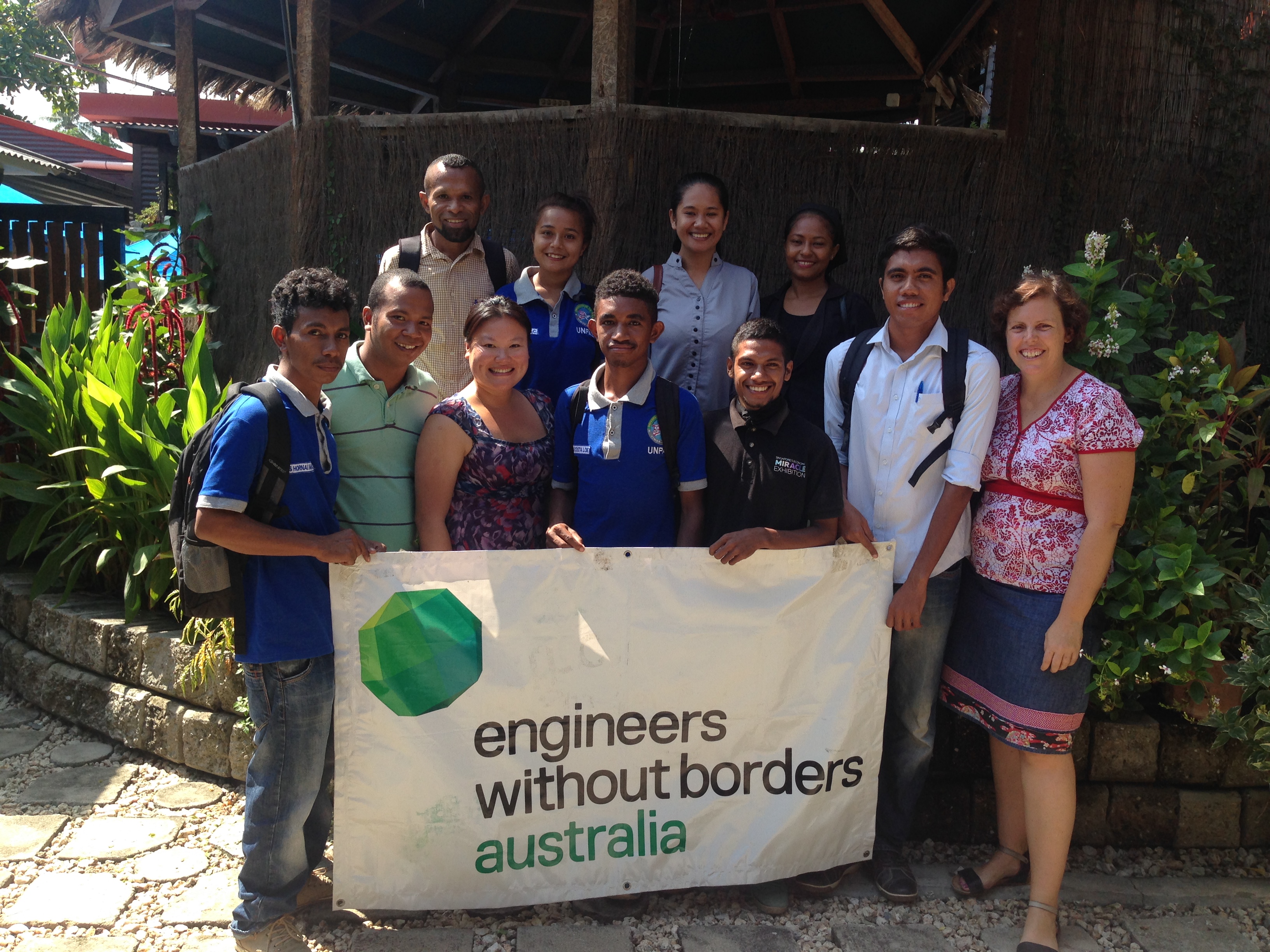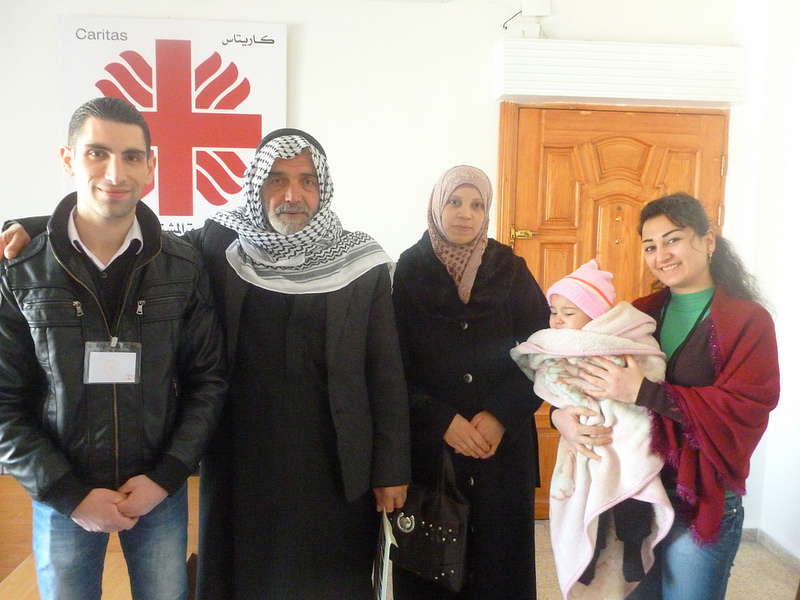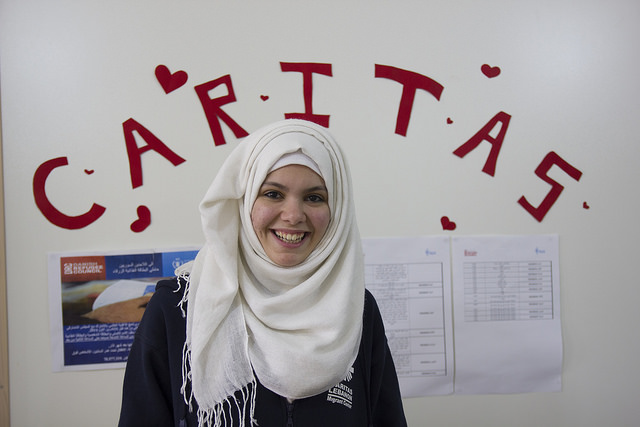Working for Humanity #worldhumanitarianday
It sounds kind of sexy and adventurous, and deeply ‘good’ because it is so sharply focused on purpose. But you’ve got to want it and have the utmost levels of grit and determination to work in the field of humanitarian aid and development. In the lead up to World Humanitarian Day our Head of Marketing Communications, Lyndal Stuart, spoke to two international development charities to find out what it’s like when your day-to-day job is about making people safer and happier in a faraway place.
Humanitarianism is quite a romanticised profession. I know that once upon a time, I would think of the work of charities and those engaged in charitable work and the images conjured would be that of people in conflict zones, situations requiring emergency and disaster relief, and the distribution of aid – whether that be food, clothing and shelter, medicine or money. I know why – it’s heroic, selfless and deeply good work that calls on people with vast amounts of compassion and kindness. When you’re young and idealistic yourself, that appeals to the imagination. In all honesty, it still does (I’m just not as young these days).
A ‘humanitarian’ is defined as a person engaged in the promotion of human welfare and social reform. Ultimately, humanitarianism as a movement is centred on the value of human life with the goal to save or improve the lives of others, relieve suffering, and maintain human dignity.
With a purpose like that, it’s a career path with the promise of being extremely rewarding, frightening, isolating, lonely, fleeting, frustrating and elating – and those are some of the descriptions you hear associated with this sort of work from the people who do it. People engaged in humanitarian work put their lives in danger, leave their friends and family in their home countries behind for months or years at a time, and face unthinkable odds to achieve their goals.
This year, the United Nation’s day of awareness for humanitarian workers is centred on the campaign #NotATarget. In places torn apart by conflict, war, political instability, famine, disaster and economic breakdown, health and aid workers who risk their lives to care for others – often voluntarily – are increasingly being targeted.
The UN is championing a global online campaign featuring an innovative partnership with Facebook Live, together with events held around the world, to advocate collectively to the leaders of the world to protect civilians caught in crossfire of conflict.
Every year, Good2Give donors actively put their support behind humanitarian agencies around the world – in fact international aid and development are regularly the cause areas attracting the most support through our Workplace Giving Platform.
Two examples of organisations providing support to communities internationally are Caritas and Engineers without Borders. I spoke to them to find out more about the focus of their programs, how the donations they receive help the cause and what the outcomes of their efforts look like.
Engineers Without Borders: For People and Places
We can’t video Skype when I speak with Director of International Programs for Engineers Without Borders (EWB), Heidi Michael, because the internet connection can’t quite cope where she is – but I can still clearly hear chickens clucking in the background.
It paints a picture in my mind of a faraway place removed from urban amenity. Dusty, rustic, creaking under the strain of ‘making do’ and providing plenty of opportunity to make a difference. It’s not a disaster zone, it’s not a conflict zone, but Heidi’s can very quickly point out the challenges faced by this community.
“There are power cuts, regular flooding, you get sick and you’re not just around the corner from a doctor – it’s not easy and it’s a stark contrast from the life we know in Australia,” says Heidi. “But the rewards are high and being removed from the everyday life in Australia and being here means you experience enriching relationships with the families you stay with, the people you work with and the communities you become a part of. It’s also a less complicated world in many ways, and I actually find that refreshing.”
Heidi talks about how she defines her career as a ‘humanitarian’ and sees the role EWB fulfils as a niche need within the humanitarian field. She knows humanitarian work is often identified as a profession geared towards disaster relief and response, and very much about circumstance and immediate need. However, there is another aspect to humanitarian work that is just as critical and one that EWB is focused on. Humanitarian engineering builds the capacity of communities to address the challenges that they identify in their own communities, whether that be clean water or adequate housing. It is a people-centred, strengths-based approach towards improving community health, wellbeing and opportunity.
“It should be the norm that people are the focus of what engineers do because they will be the ones using the infrastructure, technology and services we design, so they should be at the forefront of our professional approach at all times,” says Heidi.
Engineers Without Borders is taking this approach and growing a global movement for engineers everywhere, aiming to embed the principles of human centred design within daily engineering practice, irrespective of sector or circumstance.
So what do you do, and how did you get here?
Heidi Michael is an environmental engineer with a Masters qualification from Loughborough University in the United Kingdom. She completed her undergraduate studies at The University of Western Australia (UWA). What her and her team are working on in East Timor, Cambodia, Vanuatu and farther afield in southeast Asia and the Pacific region is enabling the local technical sector by investing in knowledge and capacity in communities.
“One of our core focus areas is to provide sanitation in challenging environments,” Heidi says. “We’re working in places here that are prone to regular flooding and some communities are built into hard rock where you simply can’t dig the hole to make a latrine.
“One of our big success stories is the Atec* Biodigester, which converts food and animal waste into clean bio gas that can be used for cooking and lighting,” Heidi says. “We designed this with the local community and are now having this produced in a local factory. This provided a sanitary waste management solution, and power for kitchen cooking equipment including a stove and rice cooker. That reduced the need for women and children to spend hours gathering firewood for cooking, and also reduces harmful smoke in household kitchens. So, it was a double win – for community health and environment in addition to the safety and hygiene progress we made.
“When I see that result – how we use our technical abilities and knowledge to improve the lives of women and children, and their families, that’s extremely rewarding,” she says.
Where does the money go?
Heidi explains the costs of putting one EWB field professional into a community: $50 – $60K. Most people volunteer and take time out from their corporate careers to do this work, but they still need housing, insurance, medical and psychosocial support. Plus, there is a small team coordinating, designing and developing the International programs. It’s a big number, and I point out that it highlights that developing an engineering solution isn’t a quick transaction. Heidi agrees.
“Financial support is important, but so is the flexibility to use that support where it is needed, because we work in circumstances that are constantly and quickly changing and being able to adapt to those needs is vital,” she says. “We’re building skills and knowledge that lay the foundation of a stronger engineering sector in these countries. So, what we are talking about is generational change across the sector, so long term support really matters. That’s why our partnerships are all a minimum of three years because the incremental change that results from our programs may take ten years to come to life.
In 2013, EWB obtained full accreditation status by the Australian Department of Foreign Affairs and Trade to participate in the Australian NGO Cooperation Program. They receive financial support from the Australian Government, but they need to match that from corporate and individual support. International programs cost the organisation nearly 57 per cent of their overall income.
“What we do with that funding is build capacity and knowledge locally. We do so much across the whole sector, but just some examples include our new design thinking challenge with East Timor universities where over 100 engineering student participants will learn design thinking skills, working with local community to come up with new ideas and solutions for challenges. We also now have local staff on our program who have come through our internship program. One of our national staff is now taking on the role as our team coordinator, and it’s just fantastic to see people flourish and learn and develop like that.

“We are seeing a real shift in the engineering sector in East Timor and we’d like to think we have played a part in that – seeing the momentum for change, seeing students come through our programs and learn with us and then go on to work in that sector and put their knowledge to work with community centred approaches – that’s the impact we’re looking to have and that’s our mark of success,” Heidi says.
Caritas: supporting families fleeing Syria
The Syrian Civil War started in 2011. That’s more than six years ago. Last year the United Nations identified 13.5 million Syrians needing humanitarian assistance in total: that accounts for six million people internally displaced within Syria, and close to five million who are now refugees from Syria in countries around the world.
Caritas Australia is providing essential support to displaced Syrian families.
“The war in Syria has claimed more than 400,000 lives and uprooted more than half of Syria’s 22 million people,” says Suzy McIntyre, Humanitarian Programs Coordinator at Caritas Australia, who recently returned from a trip to Caritas programs in Lebanon and Jordan.
Caritas Australia is working with its partners to provide the survivors of the Syrian crisis with critical assistance, including educational support to the first generation of children studying in Jordan.
The Caritas Education Program, implemented by Caritas Jordan, is providing literacy and numeracy classes, trauma counselling sessions, and a framework that helps to promote academic improvement both at school and at home.

Financial support* from Australian donors means humanitarian workers in Jordan can provide:
- A safe place for children to attend school
- Training for teachers and counsellors
- Educational materials and supplies
- Support for families to send their children to school
How does this help Syrian refugees?
“Being away from home is the most difficult thing but I’m thankful that my children can go to school,” says Mariam, 45, of the Caritas program.
“We’re afraid of ISIS, that’s why we came here. We’re afraid, too (but) Syrians are very smart and clever. We can handle everything anywhere. When the war is over, we will make it a beautiful country again,” says Salwaa, 74.

“Every bit of support we get from the community helps to create a more stable and progressive situation in the Middle East,” says Mrs. McIntyre.
“A regular donation of $35 a month can provide a young Syrian refugee with a school uniform and a week’s meals for their schooling in Jordan. $90 a month can provide transport for 20 young refugees to get to school in Jordan.”
Donations to Caritas Australia through Good2Give’s Workplace Giving Platform help families coping with the fallout of the Syrian crisis. You can support the Caritas’ education programs in Jordan through your company’s workplace giving program here.
*Caritas Australia also recognises the generous support of the Australian Government’s Humanitarian Partnership Agreement.
Photography courtesy of Engineers Without Borders and Caritas Australia. Please contact these charities directly for permission to publish these images for other purposes.
–




